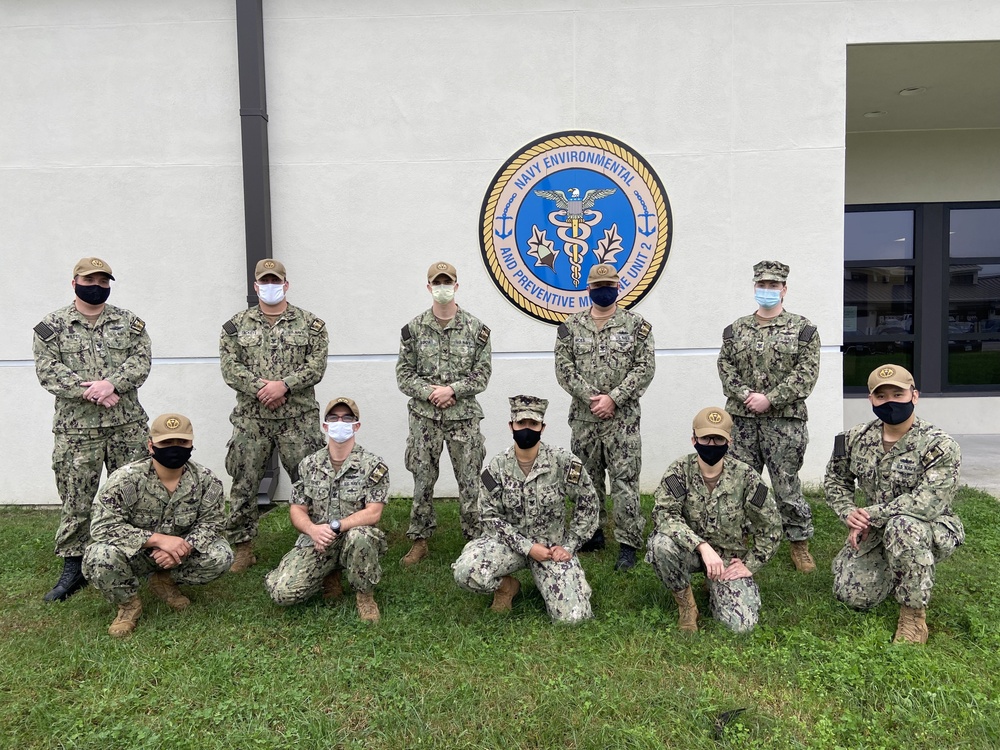DVIDS – News – Real-Time Ship Sanitation Certificate Tracking System Helps Accelerate Operational Readiness
Hospital Corpsman 2nd Class Anthony Sgroia of Navy Environmental Preventive Medicine Unit Two (NEPMU-2), based in Norfolk Virginia, developed a new Ship Tracking and Analytical Reporting System (STARS) to accelerate the process used in ship sanitization certification.
Known as the Ship Sanitation Certificate (SSC) Program, certification is a safeguard against infectious disease outbreaks onboard ships to ensure they are operationally ready and do not transmit disease around the world.
The SSC Program is managed by the Navy and Marine Corps Public Health Center (NMCPHC) and requires various inspections be conducted on all Navy, Military Sealift Command, Army, National Oceanic and Atmospheric Administration (NOAA), and Coast Guard ships before they can deploy.
To receive a Ship Sanitation Control Exception Certificate (SSCEC), inspections are conducted by several authorized inspectors derived from 58 approved inspections commands. Each inspection focuses on the following areas: galleys (eating and cooking areas), potable water treatment systems, pest control and medical waste, Collecting-Holding-Transfer (CHT) systems, disease surveillance programs, and berthing (sleeping) areas. Once each inspection is complete, certifications must be received, tracked, and reported in a timely manner.
Keeping ships deployable and safe is no small task and requires an effective, and collaborative effort. NEPMU-2, based in Norfolk Virginia is responsible for approximately 226 ships, and performs up to five to seven inspections each month. Sgroia, who is one of their inspectors noticed there seemed to be a bottleneck in the process when it came to reporting and tracking information.
Because inspectors were relying on a shared Excel spreadsheet, they did not have the ability to update or add information at the same time or to share real-time information. Additionally, each of the inspecting commands had internal spreadsheets to track their own, local certifications but were not visible to the other inspecting commands. This made it difficult for inspection sites to view certificates from previous inspections and to see if there were common areas with issues. Inspectors also could not see if ships missed previous inspections due to being in the shipyard for maintenance, or had an extended deployment with a certification extension.
To solve this problem, Sgroia and members of NEPMU-2 decided to update the process through development of a multi-user interface, now known STARS. The new system would allow users to add and update information at the same time and provide real-time reports. STARS would allow users across the Navy enterprise, to have a standardized sanitation certification tracking system as well as an information sharing tool.
During the development phase, Sgroia learned, once implemented, the new interface could save more than 500 man hours annually but most importantly would increase data integrity. The implementation of STARS can also ensure NMCPHC, which develops public health policy for the Fleet, has the most accurate information which can be used in reports generated to aide in decision-making. Since the piloted rollout in January 2020, with a soft release at five of the 58 inspection commands, STARS has been used to complete 148 SSCECs. The goal is to have a complete rollout by 2021.
“It has been an honor to contribute to the modernization and standardization of a program that is essential to our war fighting capabilities,” said Sgroia.
| Date Taken: | 11.18.2020 |
| Date Posted: | 11.18.2020 10:26 |
| Story ID: | 383285 |
| Location: | NORFOLK, VA, US |
| Web Views: | 279 |
| Downloads: | 0 |
PUBLIC DOMAIN
This work, Real-Time Ship Sanitation Certificate Tracking System Helps Accelerate Operational Readiness, must comply with the restrictions shown on https://www.dvidshub.net/about/copyright.


 Private Internet Access gives you unparalleled access to thousands
of next-gen servers in over 83 countries and each US state. Your
VPN experience will always be fast, smooth, and reliable.
Private Internet Access gives you unparalleled access to thousands
of next-gen servers in over 83 countries and each US state. Your
VPN experience will always be fast, smooth, and reliable.